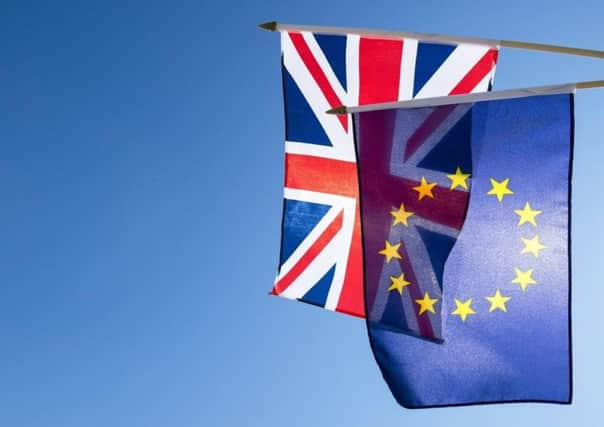How has Brexit affectedmigration in resort?


Although more people are still arriving in the resort than leaving, the rate has slowed dramatically since the referendum in June 2016.
The Office for National Statistics estimates that from July 2015 to June 2016, the month of the EU referendum, 254 more long-term migrants arrived from abroad in Blackpool than left.
Advertisement
Hide AdAdvertisement
Hide AdHowever in the 12 months after Brexit that figure dropped by 119. In total, 612 people moved to Blackpool from abroad and 477 left, leaving the latest net migration figure at 135.
But while the number of people arriving from outside the UK has remained largely steady over the last two years, the change is driven by an increase in people leaving.
Blackpool South MP Gordon Marsden said the figures account for a very small percentage of the resort’s population.
He added: “The more interesting question is how many of these people who are leaving may be EU migrants, and if they are people who have particular important skills.
Advertisement
Hide AdAdvertisement
Hide Ad“We know there are significant numbers of EU residents who are here who may be leaving who work in the NHS and in social care, which are both highly important to us, and that will put even more pressure onto these services.”
But he said internal migration –people moving within the UK –was also important to consider.
“These figures make up for the significant transience issues that we have, particularly in the centre of the town, and what the government doesn’t address in any of its funding formulae is the extra impact of this,” he added.
The were 7,994 people arriving in Blackpool between July 2016 and June 2017 from elsewhere in the country, which makes up almost six per cent of the population.
Advertisement
Hide AdAdvertisement
Hide AdHowever, that figure was matched by an almost identical number of people leaving for other parts of the UK. While the Blackpool figures do not give details of where migrants came from, the latest national figures, for 2017/18, show EU migration is at its lowest level since 2012.
Blackpool North and Cleveleys MP Paul Maynard said: “The figures show immigration in Blackpool is still happening, but at a slower rate.
“They do not tell us anything about the people who are arriving, those who are leaving or their individual circumstances and decisions.
“One of the advantages of leaving the European Union is that we will be able to have greater control over our own borders.
Advertisement
Hide AdAdvertisement
Hide Ad“In future our immigration policy will be decided in Westminster.”
In Fylde, net migration from abroad has remained largely static, down to 58 from 59 the year before.
Meanwhile the figure in Wyre rose from 114 to 164 in 2016/17.
Madeleine Sumption, director of the Migration Observatory at the University of Oxford said: “The UK has clearly become a less attractive country for EU migrants since the referendum.
Advertisement
Hide AdAdvertisement
Hide Ad“The lower value of the pound means that workers coming here for higher wages are getting less than they were in the past, and economic conditions in many of the key EU countries of origin have improved a lot over the past few years.
“Uncertainty about the implications of Brexit may have played a role.”
The number of migrants registering with GPs in Blackpool has gone up over the last year.
Between July 2016 and June 2017 there were 815 new registrations from people previously living overseas – regardless of nationality – compared to 718 the year before.